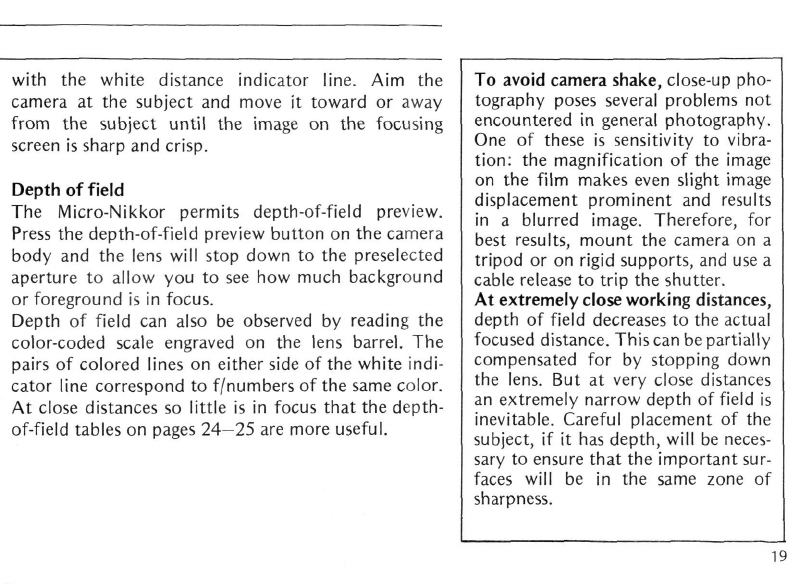
with the white distance indicator line. Aim the
camera at the subject and move it toward or away
from the subject until the image on the focusing
screen is sharp and crisp.
Depth of field
The Micro-Nikkor permits depth-of-field preview.
Press the depth-of-field preview button on the camera
body and the lens will stop down to the preselected
aperture to allow you to see how much background
or foreground is in focus.
Depth of field can also be observed by reading the
color-coded scale engraved on the lens barrel. The
pairs of colored lines on either side of the white
indi-
cator line correspond to f/numbers of the same color.
At close distances so little is in focus that the depth-
of-field tables on pages 24—25 are more useful.
To avoid camera shake, close-up pho-
tography poses several problems not
encountered in general photography.
One of these is sensitivity to vibra-
tion:
the magnification of the image
on the film makes even slight image
displacement prominent and results
in a blurred image. Therefore, for
best results, mount the camera on a
tripod or on rigid supports, and use a
cable release to trip the shutter.
At extremely close working distances,
depth of field decreases to the actual
focused distance. This can be partially
compensated for by stopping down
the lens. But at very close distances
an extremely narrow depth of field is
inevitable. Careful placement of the
subject, if it has depth, will be neces-
sary to ensure that the important sur-
faces will be in the same zone of
sharpness.
19


















